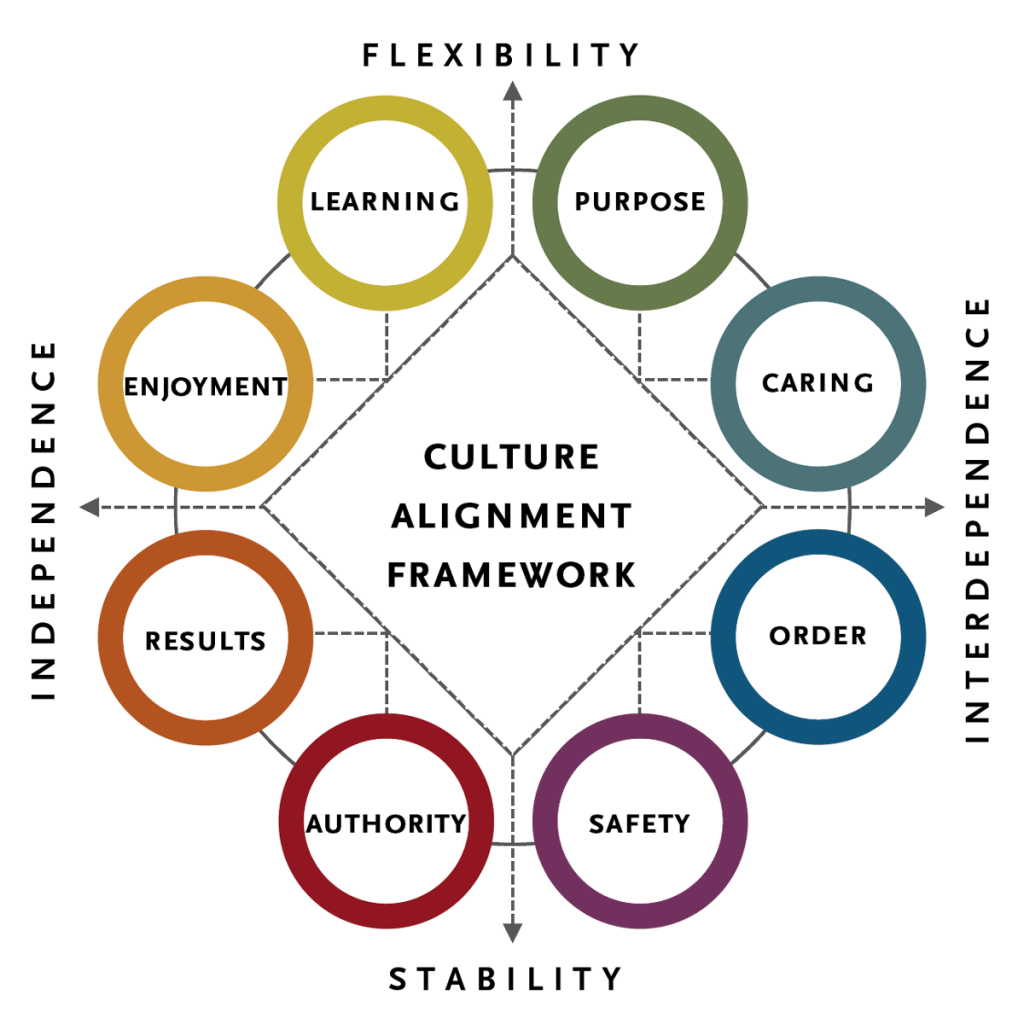By the word company culture, we mean the amalgamation of knowledge inherited from our ancestors or we can say from the environment we grew up in. Culture varies from person to person but the ultimate motive is to be in discipline and maintain those rules and regulations to survive in a society.
Culture is a system that shares a large number of people in the form of knowledge or in the form of a set of rules to lead life happily. It is rightly said that that is education starts at home, and it’s so true.
The way we behave with people throughout our life, not only behavior but also our positive attitude towards life begins from our home. Home and family is a place where we get the maximum of the values and teachings which we called Culture in one word. It has an effect on us till we die.
Our school life and college life in each and every phase helps us to grow with all positivity and with respect.
In the same way when we reach our professional life and join any organization there also this Culture matters a lot. And it actually decides the future of the company to exist in the run. The company culture defines the set of values, goals, and attitudes of the owner. And maintaining discipline in the organization with utmost honesty and in a strict manner is must to do thing for every employee.
Mentioning the word strictly, because the culture of the company influences the whole organization from top to bottom. A company is a place where an employee spends almost 9-10 hours of his or her daily life so that actually affects his or her professional life as well.
Table of Contents
Why is the culture of the organization Important?
The importance of the company’s culture has been felt in almost all the major spheres of an organization. Starting from recruitment to retention of good employees in the company as well as the performance of the employees.
It is one of the most important aspects of an organization. It sets the tone and expectations for employees, customers, and other stakeholders. It can influence how people think, act, and communicate.
There are many factors that contribute to an organization’s culture. The nature of the business, the values that are espoused by the organization, how employees are treated, what perks they receive, their performance evaluation, and how they’re encouraged to develop are all important.
In some cases, a change in organizational culture can be difficult to implement. It may require a concerted effort from leadership and everyone involved in the organization. But if done correctly, a culture change can lead to improved performance and greater success for the company.
- The maximum number of job seekers always investigate company culture, before going for any sort of company for earning their livelihood. It’s their right to check the culture. Because they will be spending almost a day for a long period of time.
- Human Resource Department plays an important role in this genre. Because the HR of the company is someone who actually maintains the discipline in a strong way after the boss. HR rectifies HR policies accordingly to cope with every situation.
- Company culture helps an employee to grow and get satisfaction in his or her job which eventually makes them happy.
- Company culture does not always mean being strict and full of rules and regulations. If a company provides some kind of other benefits to the employees like mediclaim or a short trip that’s enough to retain the employees.
- Company Culture is also important for the mental health of the employee. Because working in a company doesn’t mean only salary and leaves. It is far beyond all this because the environment you are in is also determining your behavior towards other people in your life.
- Suppose for instance there is two company. Company A and Company B, now company A have 50 employees. And they are just working but a hell of a lot of complaints are there. They cannot enjoy their family life because they are almost always bound up with loads of work. Only one thing is given which is Salary. Now Company B has only 15 employees. They do work, they have a good rapport with everyone around. They are satisfied not only with job roles but also with the company. Salary also gives over here. Now where is the difference, the difference is in the company culture, their way of treating the employee is different. In company B the employees don’t have to work after office time overs. They spend their leisure time with family. Company B knows how to treat the employees with fun leisure time. And yes with goodies during any employee engagement sessions. Here Company A fails.

Types of Organizational Culture:
The most well-known classification of culture in an organization is known as the Competing Values Framework. Kim Cameron and Robert Quinn at the University of Michigan identified four distinct kinds of culture in organizations.
Each organization has its own unique mix of these four cultural kinds, with one type usually dominant. The bigger the company, the more likely that there is more than one culture within the company.
This can be beneficial for the company, but it could also be detrimental or even difficult to establish a common culture within a globally and regionally scattered organization.
The four cultures of an organization Cameron as well as Quinn have identified include:
- The Adhocracy Culture The active business-oriented Create Culture.
- Clan Culture The people-oriented and friendly Collaborate culture.
- Hierarchy Culture is the structure-oriented, process-oriented Control Culture.
- Marketing Culture The results-driven and aggressive Compete Culture.
Let’s look at each culture type and the way to create the types in more specific detail.
Adhocracy Culture:
Adhocracy can be described as a mix of the words ‘Adhoc” and bureaucracy. Thus, companies with adhocracy cultures are flexible and not stifled by bureaucratic processes and regulations.
It is a focus on continual innovation and improvement and the pace is often very fast while the current status quo even though it might be working is likely to be tested.
Many start-ups and tech firms such as Apple, Google, and Facebook are guided by an adherent culture, which gives them the opportunity to be creative.
This is essential to their success and brand in a marketplace that is ever-changing and extremely competitive. When start-ups turn into massive tech giants such as those companies, an adherent style of management will not be feasible across the entire company.
There will be certain functional areas or business units which require more organization, and slowing down could be more beneficial to the business such as in the area of ethical conduct and conformity.
Thus, the adhocracy-based culture might be assigned to specific areas to ensure that the company is always innovating and competitive in the marketplace.
Clan Culture:
“Clan” refers to a close-knit group of interconnected families or groups of individuals with a shared interest. Clan culture is common in family-owned or small enterprises that are not necessarily hierarchical. Employees are respected regardless of their position and the workplaces are friendly.
Companies such as Tom’s of Maine, Redmond (Real Salt), and Chobani could be described as clan-based communities that place a high value on their employees.
This type of culture encourages employees to collaborate in teams by ensuring that all employees feel as if they are equals. They are comfortable giving honest and honest feedback. In addition to the teamwork aspect, there could be an emphasis on mentorship and apprenticeship, as skills, as well as values, get passed down from generation to generation.
It is common to see high employee participation in this type of environment, which results in exceptional customer service. But the drawback to this kind of style of culture is that it’s difficult to sustain it when the business expands. There may be a lack of focus and fluidity as the company expands.
Hierarchy Culture:
A hierarchy-based culture is a common business culture throughout the US. This is defined through the structure of established procedures, as well as different levels of authority.
The employees in this culture are aware of exactly where they belong within the hierarchy of command, who is in charge of them, whom they have to report to, and what the company’s rules are. It’s essential for employees to follow the rules.
The duties are clearly defined and processes tend to be simplified. Health insurance, financial institutions, companies, as well as oil and gas businesses all have a hierarchy-based culture.
This type of corporate culture allows them to control risk more effectively, and to be solid and efficient in their operations.
But, it can make them less innovative, flexible, agile, and responsive to rapid changes in their markets or industries. They may not have the flexibility required in the current and future markets.
Marketing Culture
Market culture is about profit margins and keeping ahead of the market. It’s result-oriented and has an intense focus on the external to ensure that customers are happy. Examples of companies that have been influenced by the culture of the market are Tesla, Amazon, and General Electric.
Top-quality products and services are crucial for their success. Companies and there is always a demand to think outside the box and bring innovative or better products to the market ahead of their competitors.
While this type of environment could ensure the long-term viability of the company but employees can be exhausted due to the pressures and constant demands to produce. There could be less focus on the employee experience or the satisfaction of employees.
Developing Organizational Culture Made Easy:
The culture of the organization will evolve without your involvement. However, if there is no indication of this direction, it will not be productive or healthy. Take these three principles in mind when you are developing your company’s culture which includes recognition, communication, and actions.
Following the steps in this article, you can increase communication with your employees, establish an atmosphere of recognition and ensure that everyone on your team is putting the culture into action.
Workers tend to enjoy having fun while working or serving their organization. No one can work under pressure or in the ill cultured company, it’s suffocative. A well-developed culture allows businesses to capitalize on their unique strengths and tap into their employees’ development & potential.
By fostering a positive environment where employees feel valued and connected to the company goals, businesses can create an unstoppable force that will carry them forward toward success.

Hey there! What an informative article you have. I also want to share that company culture is essential as it’s the bedrock of each company. A strong company culture understands that people are the most valuable asset an organization has. It also acknowledges that protecting its people will help ensure long-term success. Conversely, weak or non-existent company culture can result in employee dissatisfaction and turnover, lessened productivity, and lowered profits.